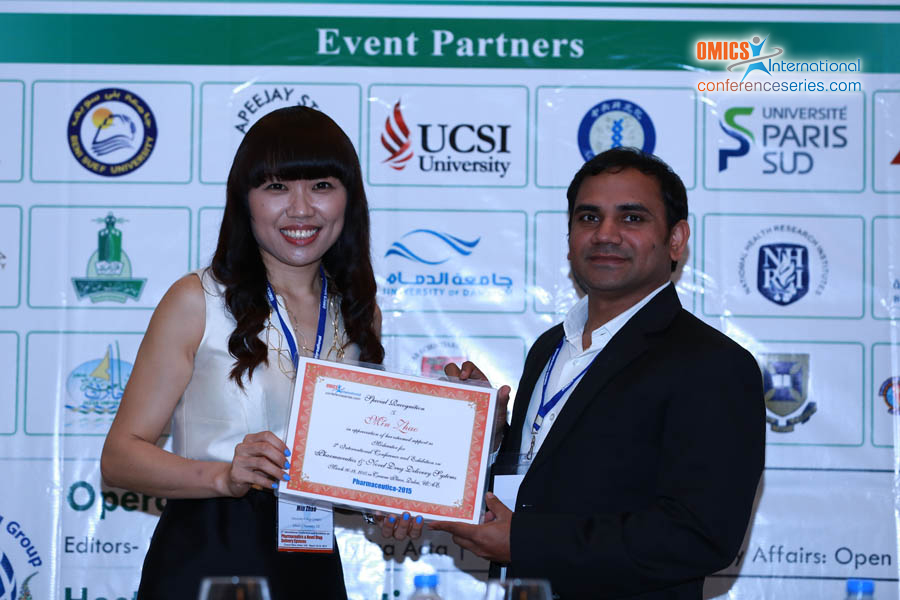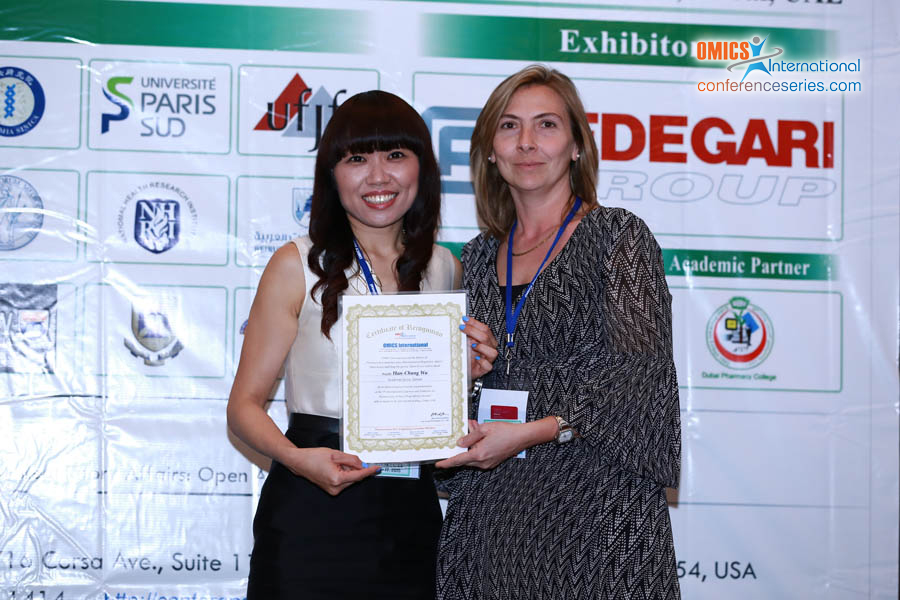
Min Zhao
University College London School of Pharmacy, UK
Title: Exploring the critical stabilizing factors for solid dispersions without drug-polymer interaction: Monitoring and inhibiting amorphousamorphous phase separation
Biography
Biography: Min Zhao
Abstract
Drug-polymer interaction and anti-plasticizing effect of the polymer are the two well-known mechanisms under which amorphous drugs may be generated and stabilized within solid dispersions. In this study, we deliberately select polymers which in the previous studies showed insignificant interactions with the drug of interest with a view to better understanding other factors determining the enhanced stability. Firstly, long term studies were performed under different stability conditions with a number of fully amorphous solid dispersions at varying polymer grades and drug loadings. The inhibition effect on morphologic change and water uptake appeared to be the key explanations for the stabilizing effects of polymers, varying with formulation and storage condition. In particular, PVP K29/32 was more effective for high temperature stability through sustaining the particle morphology while Plasdone S630 showed better stability over high humidity storage. Water uptake issue was further improved via incorporating zein (a class of prolamine protein) into the latter system. It was found that the binary system showed amorphous-amorphous phase separation while the ternary system remained stable through the entire testing period, indicating a significant inhibiting effect of zein on the water uptake of amorphous solid dispersions. Interestingly, the water induced amorphous-amorphous phase separation was well monitored using Transition Temperature Microscope (a novel method of nano-thermal analysis), which was supported by Differential Scanning Calorimetry and Scanning Electron Microscope techniques. In terms of the relationship between stability and dissolution performance, the occurrence of morphologic change and phase separation did not show profound effects on the drug release profiles.




